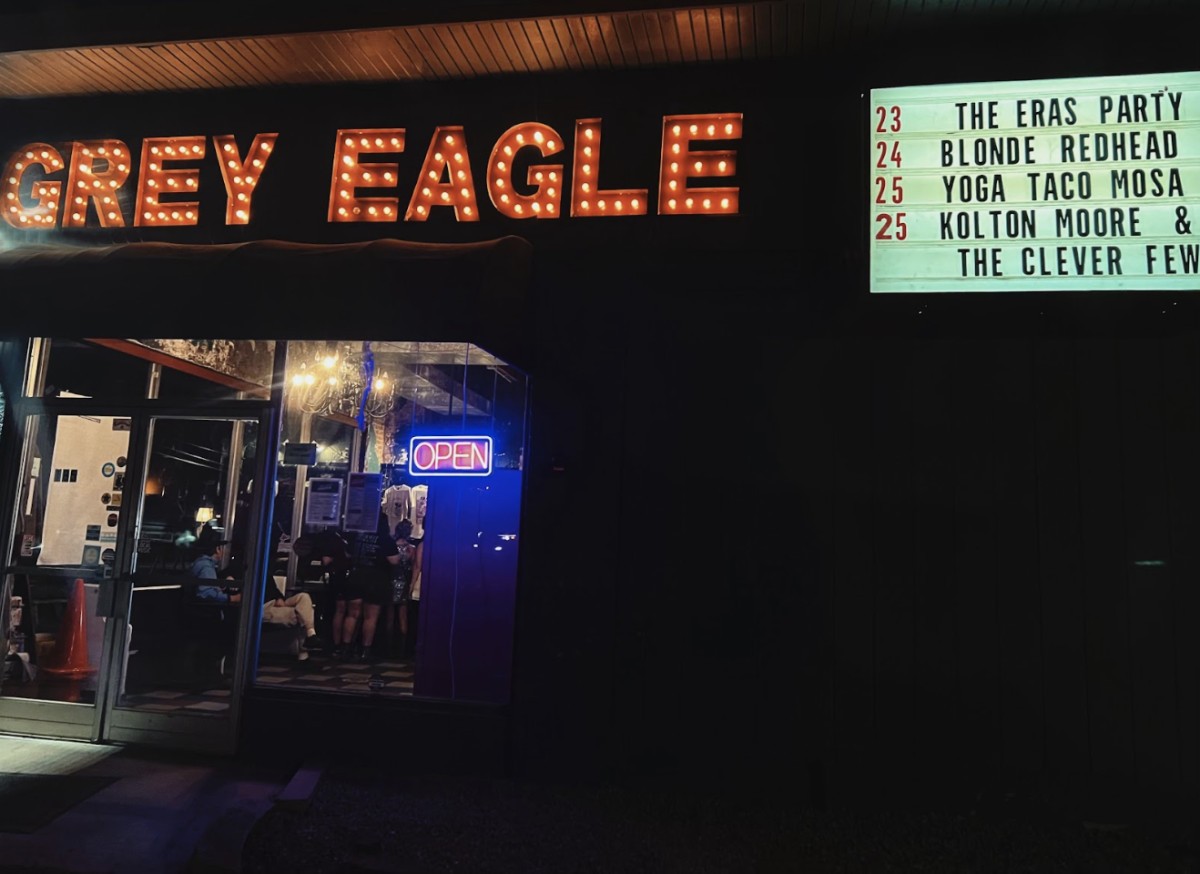Rising popularity of Taylor Swift helps expand the culture of Swifties in Asheville while ex-fans question the star’s ethics.
“I love that I’ve grown with her. I also love that she can reach so many. My 8-year-old niece loves Taylor, and I love that we can bond over that,” said Courtney Gibson, CEO of event planning company Le Petite Fete.
Feb. 23 marked the fifth time Le Petite Fete hosted a Taylor Swift themed party, this time at The Grey Eagle, located in the River Arts District in Asheville, Gibson said.
According to Spotify, Taylor Swift currently has 104.7 million monthly listeners, which is the second highest listener count in the world.
UNC Asheville Professor of Sociology Paige Ambord said Swift’s fanbase is so large it has started to create its own subculture.
“I think what’s really interesting with Taylor Swift is she has such a strong fanbase, they have their own cultural norms, and also their own sort of power,” Ambord said. “The fact that Cruel Summer ended up being like one of the top 40 songs, even though it had been released four years earlier.”
Gibson said the popularity of Taylor Swift has created a wonderful reception toward her themed events.
“The response has been amazing. There is 1,000% a special culture and community. I like to think it is a space where people from any walk of life can bond,” Gibson said.
Gibson said excitement surrounds her Taylor Swift events, especially around album releases.
“We see the most excitement around new album releases. I think her rising popularity has really just broadened the horizon of people she reaches and we can reach,” Gibson said.
Gibson said Swift contributes positively to culture, for girls and women. Particularly for girls being able to look up to somebody like her when they may not have a role model in their own personal life.
“I think young girls seeing a strong female role model is so important. For me it is inspiring to see there can be so many different phases in your life and there is a creative way to embrace all of it,” Gibson said.
Tyler Simms, a sophomore at UNCA, said celebrities like Swift should be more outspoken on social issues, especially with a platform as large as hers.
“Now I’ve kind of fallen out of favor of supporting her,” Simms said.
Simms said though he’s been a long time fan of Swift, her inability to comment on social issues like the Israel-Hamas conflict or her carbon emissions makes him feel uncomfortable supporting her.
“Especially when other influencers and celebrities, less famous, less known, have spoken out about it. It just sucks because I mean, I grew up with Taylor Swift,” Simms said. “ I went with my friend to go see her at The Eras Tour. I have cardigans and stuff. But it’s hard for me to want to support somebody that is doing more wrong than good, especially when it’s being very public.”
Gibson said it’s a matter of personal choice if a celebrity decides to speak up on a social issue, not a requirement.
“Whether celebrities or artists should speak out about current issues is a matter of personal choice and responsibility,” Gibson said.
Simms said fans shouldn’t be downplaying a celebrity’s lack of commentary on social issues. Online communities such as Twitter “stans” will deliberately argue and defend their favorite celebrities even if the person in question is in the wrong.
Ambord said popular artists like Swift are important to the current culture and trends. But also showcases the negative effects of online fan behavior.
“We want people to like us, we want to fit in. And if you don’t fit in then you face sanctions,” Ambord said. “When those barriers are broken down, it can increase these kinds of gatekeeping behaviors and these really antagonistic dynamics between people.”
“When it comes to the point where to defend that celebrity,” Simms said. “They start downplaying and kind of ignoring other important things.”
Gibson said there is a more nuanced approach to social commentary from celebrities.
“On one hand, their platform can amplify important messages and raise awareness about critical issues, leveraging their influence for positive change. On the other hand, some argue their lack of expertise may dilute the discourse or distract from substantive discussions,” Gibson said. “Ultimately, it depends on the individual’s understanding of the issues, their motivations and the potential impact of their voice in the public sphere.”
Ambord said discourse among fans is becoming increasingly prevalent online as culture mixes more and more on social media.
“I think it’s really interesting to watch sort of how these kinds of cultural fights are going to continue to play out,” Ambord said. “I think there’s always going to be growing pains. I think eventually, things will get better.”



















